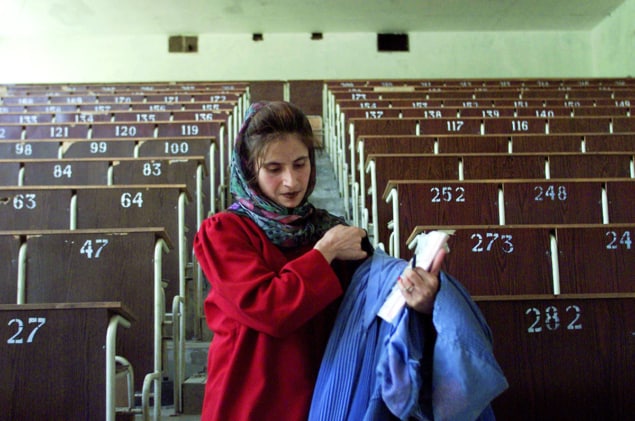Afghan scientists fear for the future in war-torn country
15 Sep 2021
 |
Calls have been made to help scientists in Afghanistan after the country was plunged into chaos in August when the Taliban regime took power in the war-torn country. Universities and other educational institutions have already closed their doors and science education has ground to a halt. Some scientists have even fled abroad, believing themselves direct targets of the Taliban.
Science in Afghanistan may not exist in the foreseeable future and it is especially difficult for the upcoming generation as they may grow up in a place without scienceBaktash Amini
Many Afghan scientists fear they are at risk of retaliation from the Taliban, who have said their values do not lie with scientific advancement. Those scientists include hundreds of researchers who have worked for or with NATO and other international institutions or who have taken part in internationally funded research programmes. Women are under particular threat, with the Taliban opposing women’s education.
In a letter released late last month, Scholars At Risk (SAR) – an international network of more than 500 higher education institutions in 40 countries – urged European governments to take “immediate action” to help scientists trapped in Afghanistan. SAR has called for continued evacuations of scientific staff and their families, despite the process ending when the US permanently left the country on 30 August. It also wants universities to host scholars in temporary positions, set up a fellowship scheme, and place fewer restrictions on visa applications for Afghan scholars.
The next generation
One physicist at risk is Baktash Amini from Kabul University, who is Afghanistan coordinator for the International Centre for Theoretical Physics (ICTP) based in Trieste, Italy. He is currently seeking asylum in Italy where he hopes that he can continue his research. But Amini fears for his colleagues who have been left behind and says that returning to Afghanistan is now no longer an option.
“The future prospects for the development of science in Afghanistan seem to be ambiguous,” he says. “Careers have ended, and funding will not be continued. Science in Afghanistan may not exist in the foreseeable future and it is especially difficult for the upcoming generation as they may grow up in a place without science.”READ MORE

Afghan science has faced continual hardships over the past two decades, with many prominent scientists opting to pursue their research careers elsewhere. “Ever since Afghanistan was invaded 20 years ago, it has been very difficult for science, but at least we managed,” Amini says. “Over the [last few] years we pushed for the scientific community to have a good base: it all starts with having a proper educational foundation. It is sad to see that all of those efforts have been put in an unknown future”.
Amini helped to set up initiatives through the ICTP to help Afghan physics. He says that many Afghans currently in Europe are teaming up to create a community to give the younger generation a chance. “The goal is to support brilliant young minds by providing scholarships and fellowships to pursue their higher education outside [Afghanistan],” he says. “In the long term, this would have a significant impact on the country – it seems the only way we can provide a scientific future for Afghanistan.”
Martijn Boerkamp is a science journalist based in the Netherlands
from physicsworld.com 15/9/2021
Δεν υπάρχουν σχόλια:
Δημοσίευση σχολίου